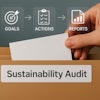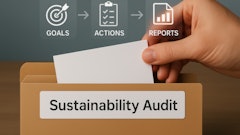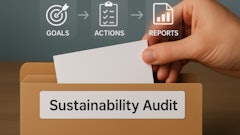
The Procter & Gamble Company announced it has achieved many of its 2020 environmental sustainability goals, has plans in place to meet the rest and has established new, broad-reaching goals for 2030. The new goals, titled “Ambition 2030,” aim to enable and inspire positive impact on the environment and society while creating value for the Company and consumers.
“We believe P&G can be a force for good and a force for growth, and we are taking a more deliberate approach to delighting consumers while enabling responsible consumption,” said David Taylor, P&G’s Chairman, President and Chief Executive Officer. “Consumers expect the brands they trust to deliver superior performance and to also help solve some of the most complex challenges facing our world. Our global reach, our understanding of the five billion consumers we serve, and our innovation capabilities give us a unique ability to make a positive difference.”
P&G’s “Ambition 2030” goals include:
- Brands: P&G’s 20 leadership brands including Always, Ariel, Dawn, Fairy, Febreze, Head & Shoulders, Pantene, Pampers, and Tide will enable and inspire responsible consumption through packaging that is 100% recyclable or reusable, launching more sustainable innovations, and building trust through transparency and sharing our safety science.
- Supply Chain: P&G manufacturing sites will cut greenhouse gas emissions in half, and will purchase enough renewable electricity to power 100% of our plants. The Company will also source at least 5 billion liters of water from circular sources.
- Society: P&G will continue to create transformative partnerships that enable people, the planet and our business to thrive, including those that stem the flow of plastic into the world’s ocean, protect and enhance forests, expand recycling solutions for absorbent hygiene products, and protect water in priority basins around the world.
- Employees: P&G will engage, equip and reward employees for building sustainability thinking and practices into their everyday work. We will reward progress and integrate recognition into performance assessments.
Further details about P&G’s “Ambition 2030” goals can be found here.
Building on its legacy of environmental leadership, P&G has already achieved many of its sustainability goals for 2020 in its focus areas of climate (reduced absolute greenhouse gas emissions by 16% since 2010), water (reduced water use in manufacturing facilities by 27% since 2010), and waste (achieved zero manufacturing waste to landfill for more than 80% of manufacturing sites).
The impact of the Company's progress can be seen across brands and geographies, including products like Tide purclean that include bio-based ingredients and Head & Shoulders that use beach plastics in packaging; manufacturing changes that power our plants with wind electricity and steam from biomass; and research innovations that will transform the recyclability of tons of plastic each year benefitting entire industries, well beyond the reach of P&G.
This progress is further detailed in the company’s 2017 Citizenship Report.
“Building on our progress to date, our 2030 goals seek to address two of the world’s most pressing environmental challenges: finite resources and growing consumption,” says Virginie Helias, P&G Vice President of Global Sustainability. “We know P&G alone does not have all the answers. It will take partnerships and collaboration to make meaningful progress and our brands will develop innovations to take responsible consumption to the next level.”
“P&G has been a leader in driving sustainable development. Their strategy is aligned with our belief that businesses will be more successful by being more sustainable. We applaud their framework Ambition 2030 which has the potential to drive significant positive global impact for shareholders, the environment and societies,” says Peter Bakker, President and CEO, World Business Council for Sustainable Development.

















